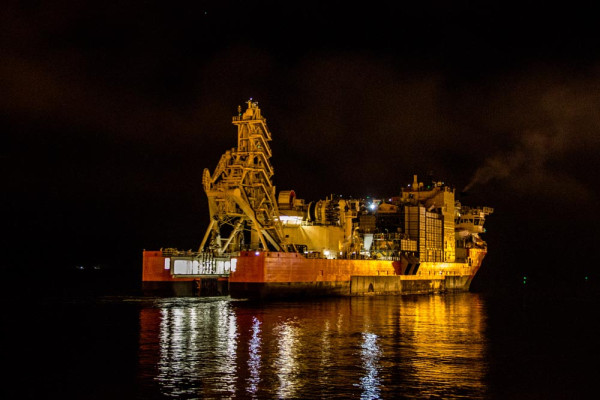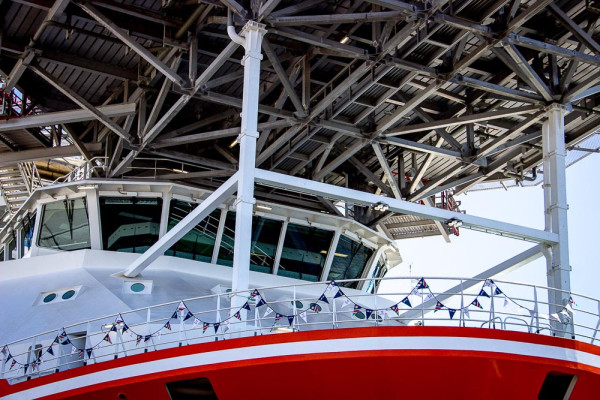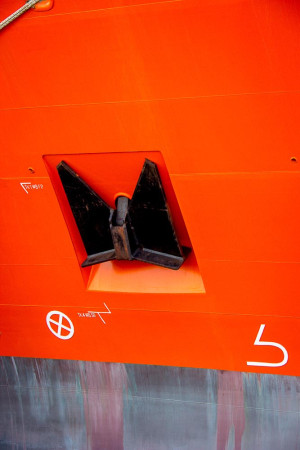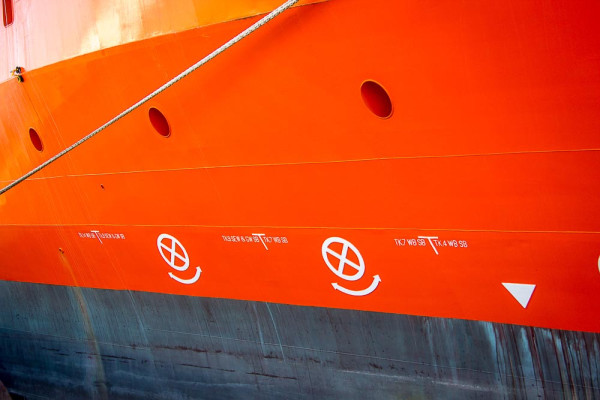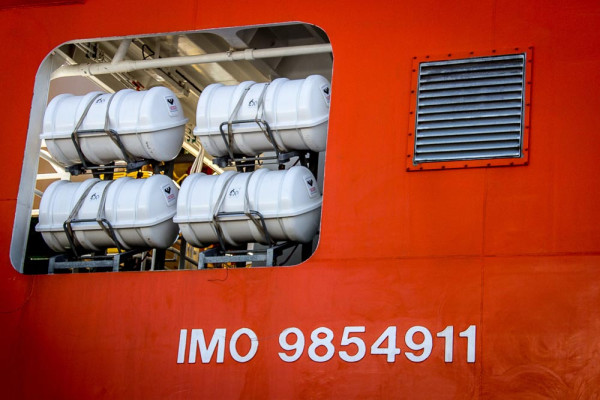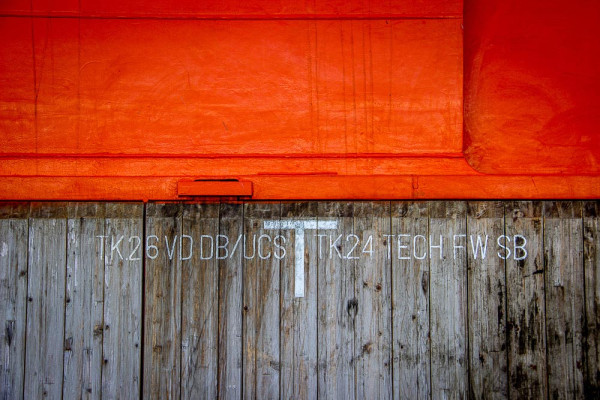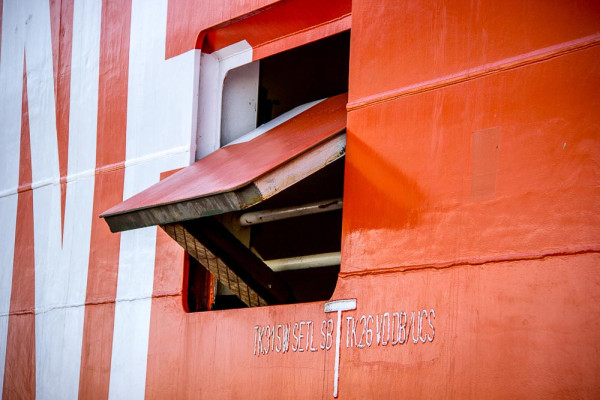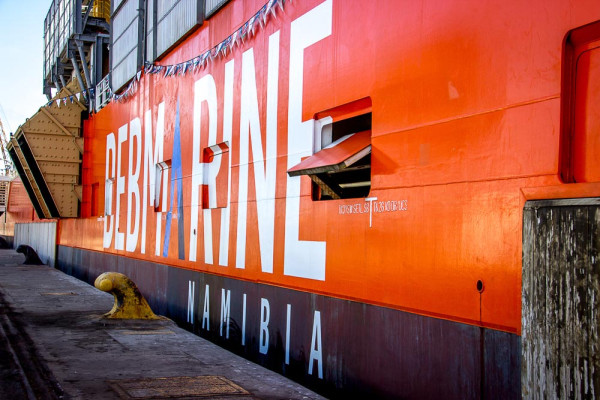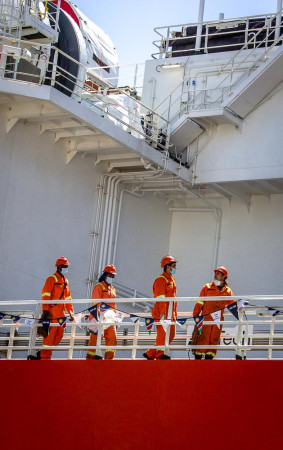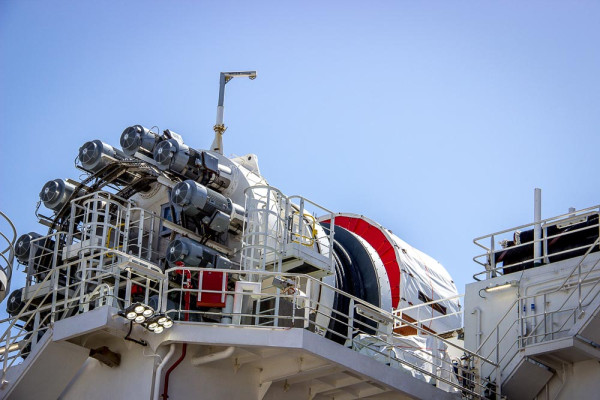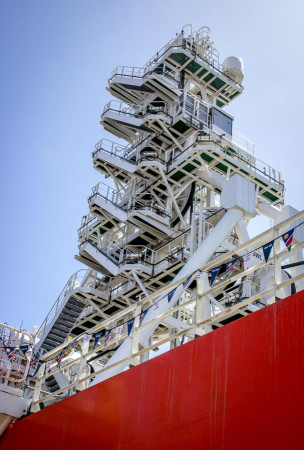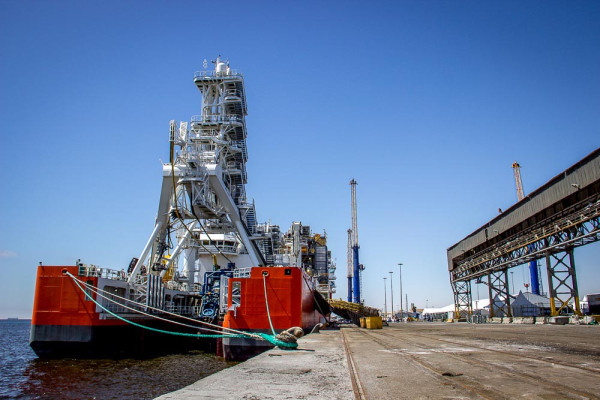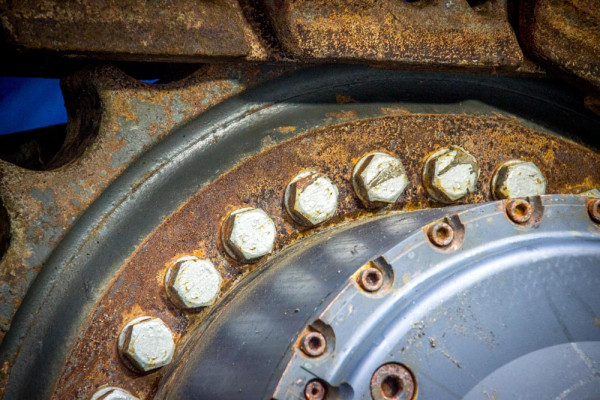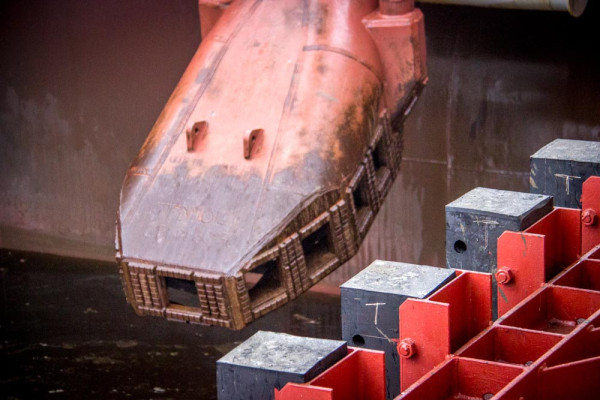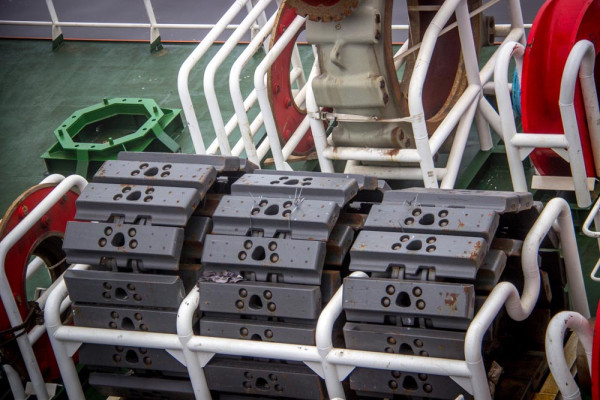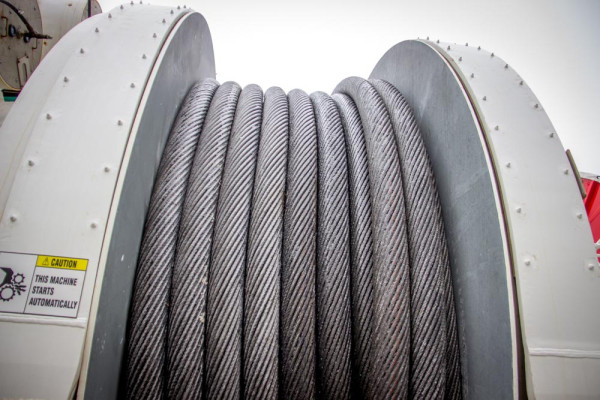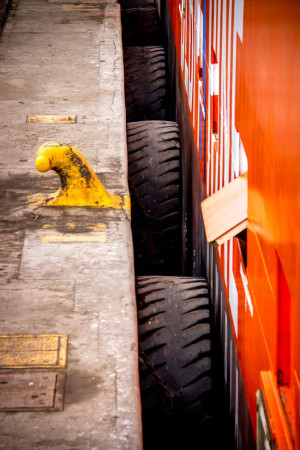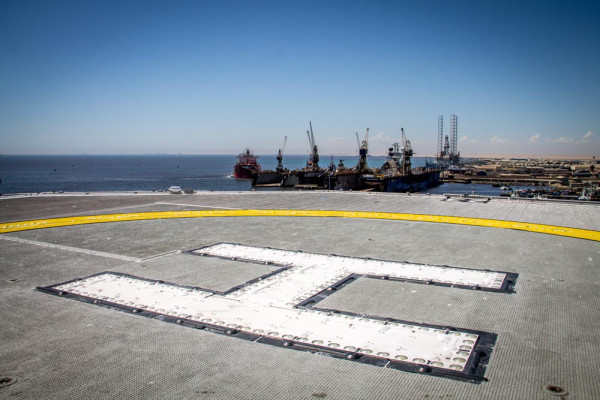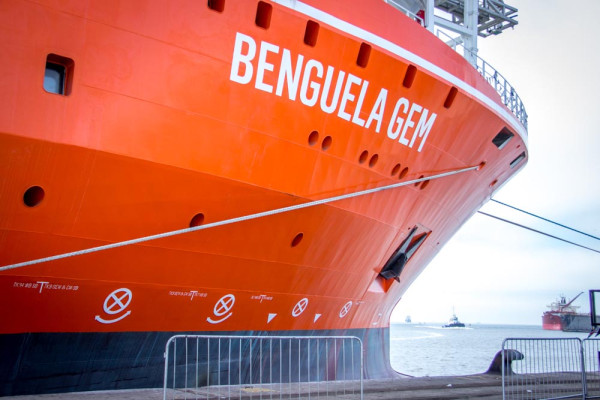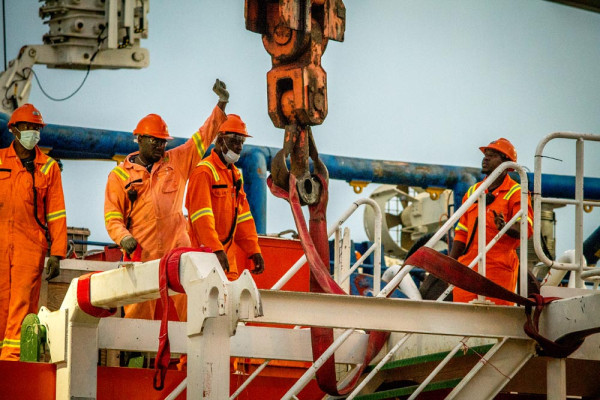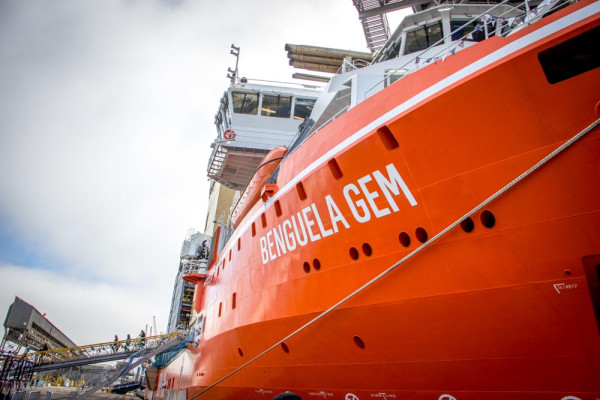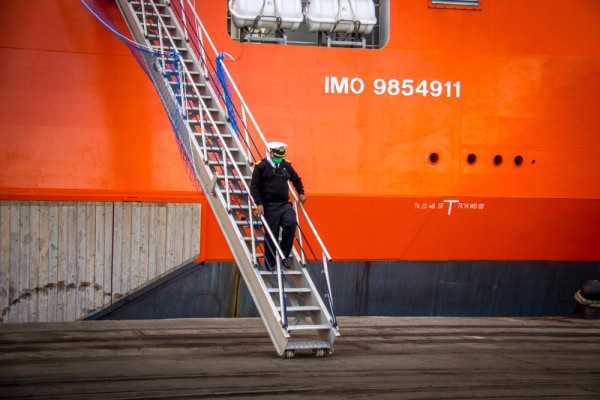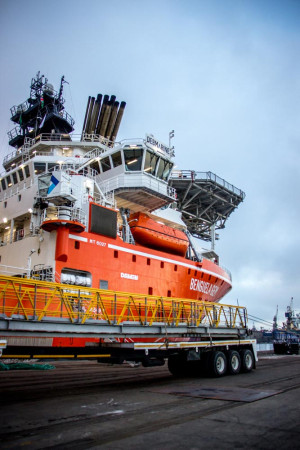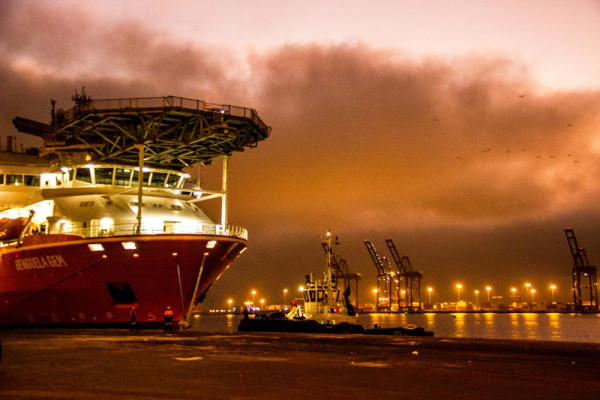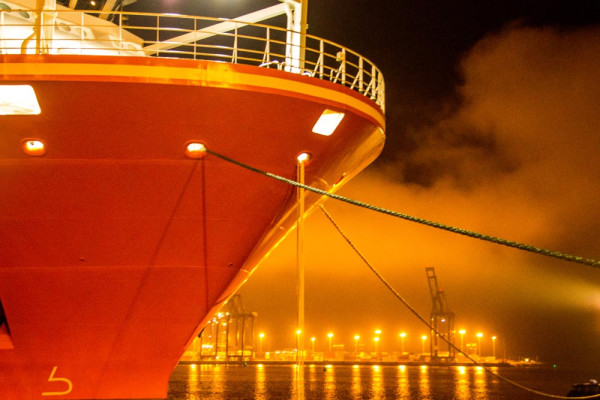Debmarine Namibia’s Environmental function is guided by the principles of reuse, reduction, and recycling to minimise any associated impacts our operations might have on the environment.
Water management
In our operations, seawater is used for the treatment process of diamond-bearing gravel, while desalinated water is employed for domestic freshwater consumption on board our vessels.
Each of our vessels is equipped with water purification facilities - one or two desalination plants that are powered by the engines’ heat, providing sufficient freshwater to meet the crews’ needs on board the vessels and ensuring self-sufficiency in terms of water requirements.
On average, our fleet generates approximately 2 500 tons of potable water per month, ensuring an adequate supply for the vessels. In the rare event of a breakdown preventing freshwater production, potable water from alternative sources is obtained and transported to the vessels via tugs.
For 2023, we have set a target of achieving 96% self-sufficiency.
Waste Management
Debmarine Namibia operates according to an integrated waste management plan (IWMP) which employs best practice standards.
Office waste management
Office waste comes in all shapes and sizes, from paper waste to recyclable waste and disused electronic equipment. This has a big financial and environmental impact on our business, which is where effective and responsible waste management plays its part.
Waste is segregated and managed according to waste type:
- General waste is collected by the local municipality to landfill
- E-waste is collected by a contractor for refurbishment or recycling
- Recyclable waste is collected by a contractor for recycling.
Vessel waste management
All Debmarine Namibia vessels comply with MARPOL Annex V in terms of waste management. The convention aims to eliminate and reduce the amount of waste being released into the sea and handled from ships. Its terms include all kinds of food, domestic and operational waste that are likely to be disposed of during the normal operation of the ship.
The following waste types are produced on the vessels:
- Liquid hazardous waste
- General waste
- E-waste
- Solid hazardous waste
- Incinerator ash
- Scrap metal
- Medical waste
- Wet (food) waste
The waste is transported from the vessels to the Debmarine Namibia Logistics Base in Lüderitz where it is received, handled, and temporarily stored. Waste handling companies are contracted to transport and appropriately dispose of waste at different facilities, according to legal and best practice requirements.
